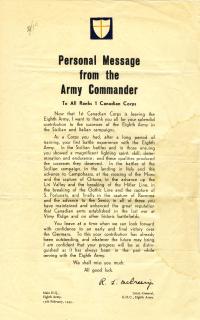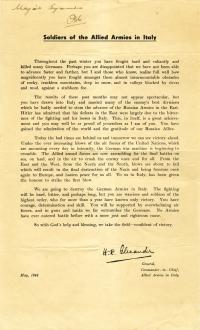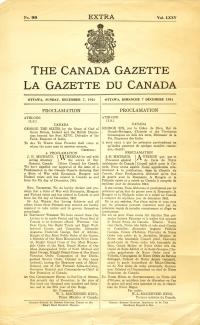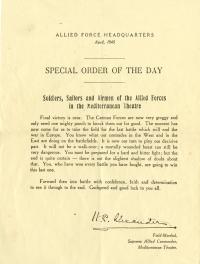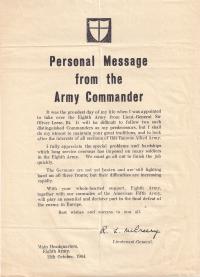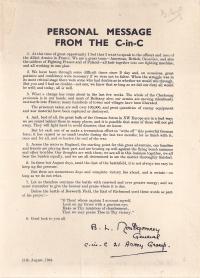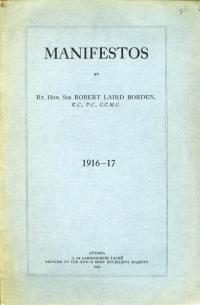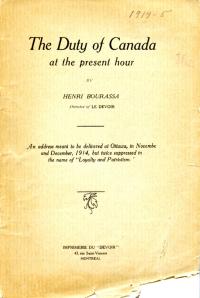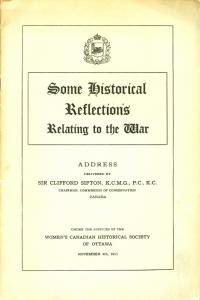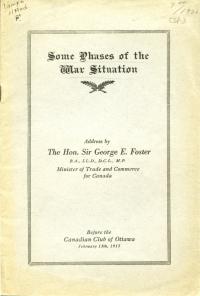Speeches and Broadcasts
1 Canadian Corps leaves Italy
Early in 1945, Canadian units were withdrawn from the campaign in Italy so they could join the Canadian divisions fighting in north-west Europe. On their departure, the army commander thanked them for their work since the invasion of Sicily in July 1943.
The advance through Italy
The messages from Generals Alexander and Leese were sent to the troops at the end of a period of bitter fighting in Italy. In the weeks that followed, Allied troops (with the Canadians in reserve) would continue the advance, eventually capturing Rome in June 1944.
Widening the war
On 7 December 1941, the federal government announced that a state of war existed between Canada and Romania, Hungary, and Finland.
The end in Italy
Canadian units had played a major role in the Italian campaign, but most of them had been transferred to north-west Europe when this message was conveyed from the Supreme Commander (and future governor-general of Canada), Harold Alexander.
Change of command in Italy
Richard McCreery took over the Eighth Army in Italy (including I Canadian Corps) from Oliver Leese, and remained in command through the rest of the campaign.
The offensive moves through north-west Europe
These messages were conveyed to Canadian units before and after the breakout from the Normandy beach head and the move east into Belgium, before the crossing of the Rhine River, and at the defeat of Germany.
The war according to Borden
This pamphlet collected some of Prime Minister Borden's statements on conscription, the Union Government, and what Canada must do to win the war.
Henri Bourassa and the war
His opponents twice prevented newspaper editor Henri Bourassa from giving this speech, in which he argued that the duty of Canadians was to stay clear of involvement in the First World War, so he elected to publish it as a booklet instead.
Freedom or despotism?
In this wide-ranging speech, Sifton, the chairman of Canada's Commission of Conservation, placed the First World War in the context of the long struggle for freedom that went back to Demosthenes, the Everlasting League, Magna Carta, and England's Glorious Revolution.
Can Germany win the war?
Foster, the Minister of Trade and Commerce, addressed two critical questions in this talk: did Britain do everything possible to keep out of the war?; and, can Germany win the war?

